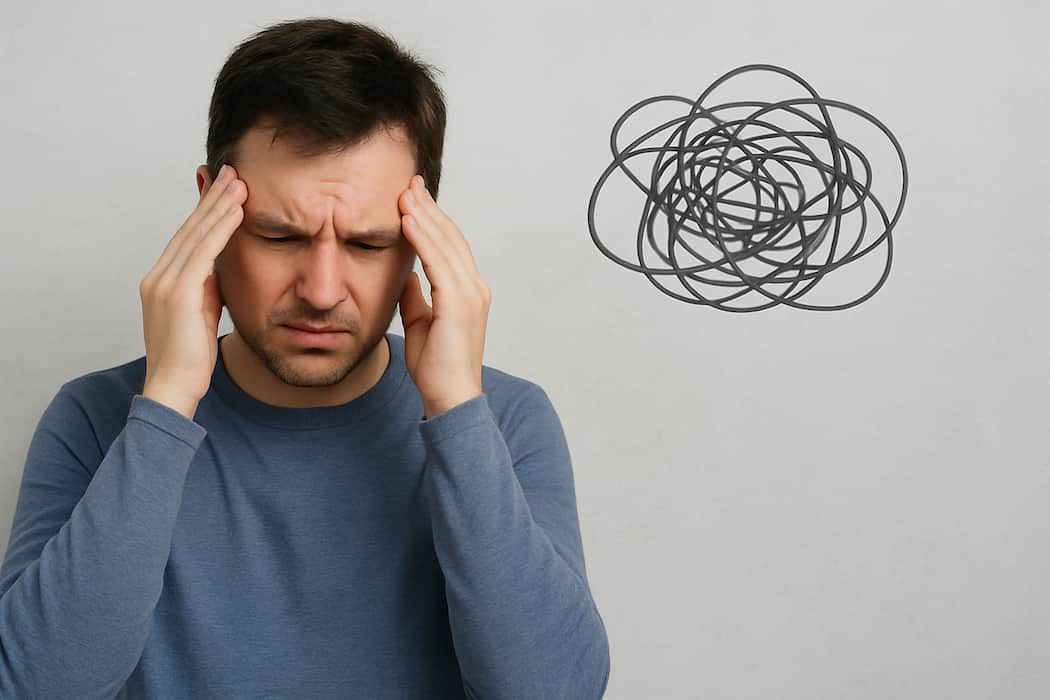
In today’s fast-paced world, where daily demands and constant pressure seem relentless, anxiety has become one of the most common emotional conditions, affecting millions of people worldwide. While it’s well known that anxiety can trigger physical symptoms such as a racing heart, sweating, or muscle tension, one of the lesser-known yet deeply troubling effects of anxiety is its impact on cognitive functions—especially memory and mental clarity.
Have you ever felt like your mind is foggy, that you’re forgetting important things, or that it’s hard to focus when you're feeling anxious? If so, you’re not alone. Many individuals come to therapy distressed, fearing they're “losing their minds,” when in reality, they're experiencing what is known as mental fog or cognitive confusion associated with anxiety.
In this article, we’ll take a deep dive into how anxiety affects memory, the neurological mechanisms involved, how to distinguish these symptoms from more serious conditions, and strategies you can use to regain your mental sharpness.
What Is Mental Fog?
Mental fog (also called brain fog) is not a formal medical diagnosis, but a description of a collection of symptoms that include:
- Difficulty concentrating.
- Trouble remembering recent information.
- Slowed thinking or processing.
- A sense of being disconnected or “out of it.”
- Inability to make clear decisions.
These sensations can occur temporarily or persist over time and often intensify during acute stress or chronic anxiety episodes.
Anxiety and Memory: How Are They Connected?
Anxiety activates the body's natural fight-or-flight response, designed to protect us from danger. When the brain perceives a threat (real or imagined), hormones such as cortisol and adrenaline are released. These prioritize physical functions needed to face the threat (like increased heart rate) while decreasing others deemed non-essential at that moment, such as short-term memory or the ability to concentrate.
The Effect of Cortisol on the Brain
Cortisol, often called the “stress hormone,” plays a central role in this process. At normal levels, it helps keep us alert. But when released excessively and continuously—as in chronic anxiety—it can:
- Alter the activity of the hippocampus, a key region for memory formation and retrieval.
- Affect the prefrontal cortex, which is responsible for attention, planning, and decision-making.
- Overactivate the amygdala, which heightens fear perception and perpetuates the anxiety cycle.
As a result, individuals feel overwhelmed and unable to recall simple facts or organize their thoughts clearly.
Types of Memory Affected by Anxiety
Anxiety can affect several types of memory:
- Working memory: Used for temporarily storing information, like a phone number or a task. This is often most affected by acute anxiety.
- Short-term memory: Involves recent information. An anxious person may forget conversations, appointments, or immediate tasks.
- Long-term memory: Though more stable, long-term memory access can be impaired by severe and ongoing anxiety.
- Episodic memory: Related to personal experiences. During intense anxiety, autobiographical memories may lose detail.
Why Does It Feel Like “Losing Your Mind”?
Those experiencing anxiety with mental confusion often describe it with fear: “I feel like I can’t think,” “I don’t remember anything,” “Maybe I have a serious brain issue.”
These thoughts can further increase anxiety, creating a vicious cycle—the fear of memory loss raises emotional tension, which worsens cognitive symptoms.
It’s important to know that in most cases, these symptoms are reversible and improve significantly when the root cause—anxiety—is addressed.
Distinguishing Anxiety from Other Cognitive Disorders
Although anxiety can mimic symptoms of neurodegenerative disorders (like Alzheimer’s), there are key differences:
| Characteristic | Anxiety | Dementia or Other Neurological Disorders |
|---|---|---|
| Symptom onset | Sudden, linked to stress or emotional crises | Progressive and gradual |
| Typical age of onset | Can occur at any age | More common after age 60 |
| Level of alertness | Heightened or hypervigilant | Decreased or persistently confused |
| Improves with emotional management | Yes | Not necessarily |
| Language and orientation impairments | Rare | Common in advanced stages |
When in doubt, consult a mental health professional or neurologist for a proper evaluation.
Strategies to Improve Memory Affected by Anxiety
- Psychological Therapy
Cognitive Behavioral Therapy (CBT) is highly effective for treating anxiety and its cognitive symptoms. It helps identify distorted thinking, reduce mental rumination, and improve stress management. - Breathing Techniques and Mindfulness
Regular mindfulness practice trains the mind to stay present, reduce overthinking, and enhance focus. - Regular Physical Exercise
Moderate aerobic activity (like walking, swimming, or dancing) helps reduce cortisol levels and increase endorphin release, improving both mood and brain function. - Structured Routines
Organizing your day with consistent schedules, task lists, and visual reminders can compensate for memory issues while emotional balance is being restored. - Proper Nutrition and Sleep
A balanced diet rich in omega-3s, B vitamins, and antioxidants—along with restorative sleep—supports brain function and reduces brain fog.
When to Seek Professional Help
If memory issues are interfering with your daily life, relationships, or job performance, or if you’re feeling persistent anxiety that’s hard to manage, it’s important to consult a clinical psychologist or psychiatrist.
Anxiety is a treatable condition, and its mental effects are not permanent if addressed appropriately. No one should live feeling as though their mind is a constant battlefield.
Final Reflection
The human mind is deeply sensitive to emotions. When unmanaged, anxiety can cloud our thoughts, distort our perception of reality, and make us doubt our cognitive abilities. But with professional help, self-care, and the right strategies, it’s possible to regain focus, memory, and inner peace.
Talking openly about these symptoms and normalizing them is the first step toward healing. Your mind isn’t broken—it’s simply asking for rest, balance, and attention.
